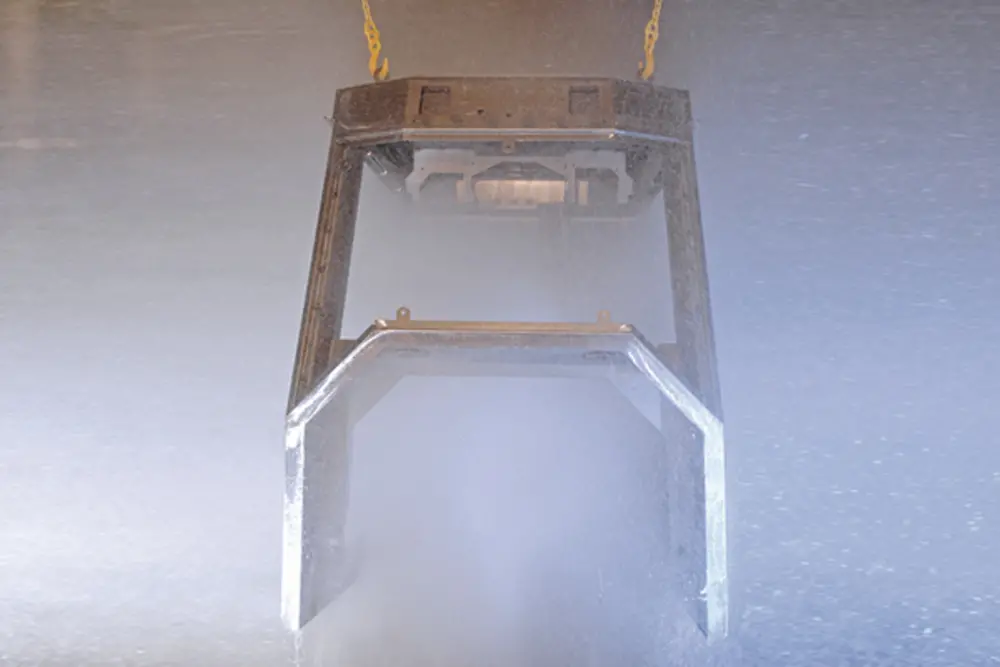Fostering resource preservation and emission reduction in the agricultural and construction machines sector
Henkel is committed to elevating awareness among agriculture and construction vehicle and equipment (heavy vehicle and equipment) designers, manufacturers, and tier suppliers about the role advanced materials can play in enabling sustainability across the value chain – from R&D to manufacturing to use in the field. The company today announced its ‘Respect the Planet, Rethink Design’ program, which prioritizes four pillars of sustainability – Climate, Circularity, Safety, and Nature – and demonstrates Henkel’s enablement of them all through its cutting-edge adhesive, surface treatment, and electronic materials portfolios.
Henkel Global Market Segment Manager, Heavy Equipment, Eric Zhai explains the inspiration behind the effort, which is designed to deliver results that amplify its customers’ commitment to sustainability. “As many in our industry are aware, sustainability is a central value at Henkel; it’s in our DNA,” he shares. “Our heavy vehicle and equipment customers are aligned on these practices, too, and we think there are opportunities to collaborate for even more impactful results. Our effort aims to show manufacturers that building tough, long-lasting equipment does not have to come at the expense of responsible environmental and human safety protocols. These are not mutually exclusive ambitions, and Henkel has proven solutions that help achieve these objectives simultaneously.”
Focusing on four defined sustainability pillars, Henkel’s ‘Respect the Planet, Rethink Design’ program leverages the technology advantages of its product line to facilitate the design, build, and use of vehicles and equipment that prioritize people and the environment, while enabling robust, reliable performance. Examples include:
- Climate – Formulas for metal cleaning processes that reduce required bath temperatures, lower chemical consumption, and decrease energy use. Structural adhesives enable lightweighting, allowing reliable bonding strength and the integration of lighter, alternative substrates for improved fuel efficiency.
- Circularity – Henkel solutions include bio-based low pressure molding hot melts and certain Henkel processes enable automated dosing and material reusability. Additionally, the company is exploring debonding solutions that can facilitate recycling and reuse.
- Safety – Materials formulated without substances under discussion, and compliance with safety agency ratings and environmental compatibility standards protect health and well-being.
- Nature – Natural resources like water are preserved through products and processes that reduce consumption and allow wastewater recycling.
As a key material supplier to the agriculture and construction equipment sector, Henkel helps customers overcome barriers to sustainable design through innovative product development and consultative sustainability programs. The company has consistently shown that deep engagement with its team can deliver measurable results.
“Time and time again, we have demonstrated how our involvement at the R&D phase can drive sustainable outcomes from end to end,” says Zhai. “Examples include cleaning and metal pretreatment innovations that have enabled low-temperature cleaning to operate at 38°C instead of 60°C achieving significant energy reduction; using structural adhesives to replace welding that can provide a carbon footprint reduction up to 15%; as well as tin-free and solvent-free adhesive sealant innovations used for bonding and sealing applications”.
As part of its ‘Respect the Planet, Rethink Design’ campaign, Henkel will share application case studies, conduct technical presentations at industry conferences, and host sustainability innovation workshops with customers at global Inspiration and Technical Centers. To learn more, visit the company’s website. To schedule a sustainability workshop with Henkel, contact the team.








